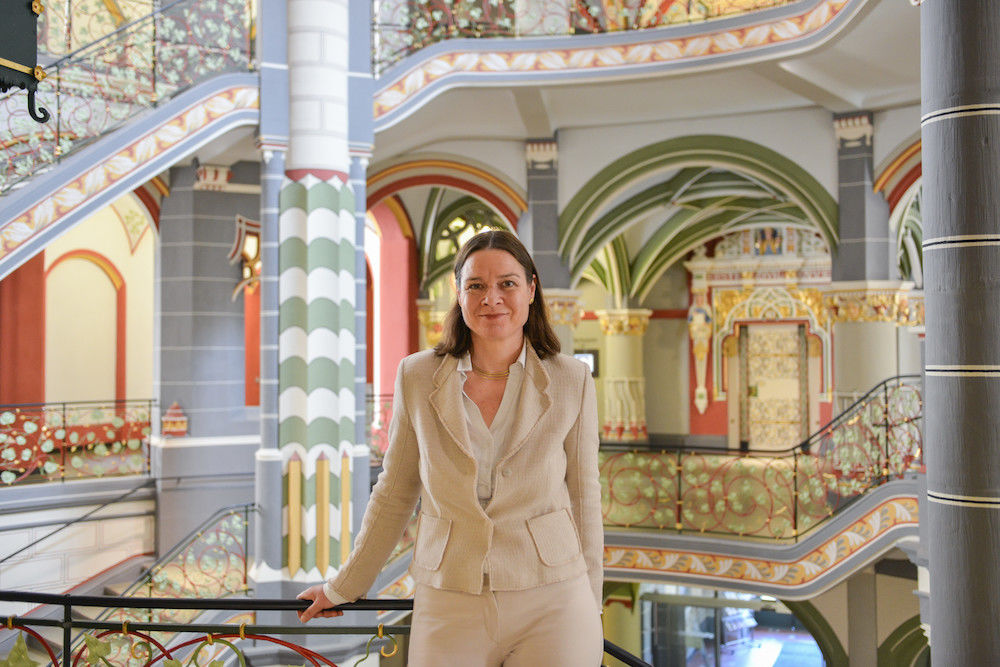The consumer protectionist

In November 2018, a new instrument was introduced into German law called the declaratory model action. The timing was no coincidence - just two months later, the claims of nearly three million car owners affected by the diesel scandal would have been time-barred. The amended legislation is intended to offer a large number of similarly injured parties the opportunity to assert their claims - in this specific case against the Volkswagen Group - without major bureaucratic and financial expense. “The declaratory model action is a true novelty for consumer protection in Germany because German law functions according to the principle of protecting the rights of individuals. This means that the admissibility of a lawsuit is based on the assumption that one’s own subjective rights have been violated,” explains Caroline Meller-Hannich, who is a professor and holder of the Chair of Civil Law, Civil Procedure Law and Commercial Law at MLU. She is also one of the most distinguished researchers in consumer law in Germany.
Expert reports for the Association of German Jurists
As a jurist, Meller-Hannich has been closely followed the diesel scandal and its aftereffects, writing scientific publications, statements and expert opinions, for example for the Association of German Jurists. “I have proposed the introduction of class action lawsuits to make it easier for people who have had major damages to obtain justice,” she says. She takes a critical view of the declaratory model action brought by an association acting as an interest group: “The procedure only preliminarily establishes whether a law has been violated. At first there are no consequences – each injured party must later sue individually.”
Caroline Meller-Hannich was born in 1970 in Bochum. She was raised there in the Ruhr area and began studying law at the Ruhr-University Bochum. She later moved to the University of Bonn, where she received her doctorate in 1997, writing her dissertation on foreclosure law. She obtained a post-doctoral degree in 2005 with her thesis on consumer law. After completing her second state examination in 1998, she worked as a lawyer in a firm specialising in international commercial and tax law in Cologne. In 2006 she started her professorship at MLU. Her academic work focuses primarily on civil procedural law, European private law, and consumer law. “Legislation and jurisprudence change as society changes,” she says. “The opportunity to actively participate in the shaping of civil law has always appealed to me. And I try to convey this fascination to my students as well.”
The sharing economy is one example of just how quickly established rules can reach their limitations. On behalf of the German Federal Ministry of Justice, Caroline Meller-Hannich examined the rights of consumers and so-called prosumers – an amalgamation of the words “producer” and “consumer” - in the collaborative economy. “It can be difficult to delineate between a provider of private services and a commercial entrepreneur,” she explains. “This is not only a problem for the tax authorities, but also for the enforcement of laws in the case of a dispute. When consumer goods are sold on eBay, accommodation is rented through Airbnb, people are transported by BlaBlaCar, cars are shared on SnappCar, or loans are arranged through auxmoney, the first thing that needs checking is whether the nature and frequency of the services constitute a commercial activity.
There are open legal questions about liability and warranty for almost all services offered through such internet platforms. Says Meller-Hannich: “Consumers often don’t even know who the contractual partner is. The platform operator? The party providing the service?” Conflicts are usually settled via the complaint infrastructure provided on the platform – e.g. help pages and FAQs, which do not examine individual cases, provide a judicially independent adjudication, or offer enforcement procedures. According to Meller-Hannich, creating genuine transparency - about the private or commercial status of the provider and about who the contract has been concluded with – is a crucial step towards protecting consumers. Even though many new business models are being devised by the sharing economy, there is not always the need for new laws. Consumers in Germany are also well protected by existing laws.
Founding a network
The expertise of the consumer law expert is in high demand. Caroline Meller-Hannich is on the scientific advisory board of the Competence Center of Consumer Research North Rhine-Westphalia. She is also a member of the Private Law Teachers’ Association (Zivilrechtslehrervereinigung) and the Association of Civil Procedure Law Teachers (Vereinigung der Zivilprozessrechtslehrer), the Scientific Association of International Procedural Law (Wissenschaftlichen Vereinigung für Internationales Verfahrensrecht) and the Association of German Jurists (Deutscher Juristentag). A few years ago, she founded a German-Brazilian research network with colleagues from Brazil and Germany, which is very active in the area of consumer protection. She also supervises doctoral students from many countries. She is often an expert witness - as in the case a few months ago for the Legal Affairs Committee of the German Bundestag on the planned amendment to the law governing the distribution of brokerage costs when selling land and homes. Of the nine experts consulted, she was the only woman. “This is unfortunately par for the course,” she says. “When I look at the proportion of women shaping German law, for example through expert opinions at the German Jurists Forum or in the scientific associations, then a little more female influence would be nice.”
Professor Caroline Meller-Hannich
Department of Law
Telephone +49 345 55-23230
Mail: caroline.meller-hannich@jura.uni-halle.de
